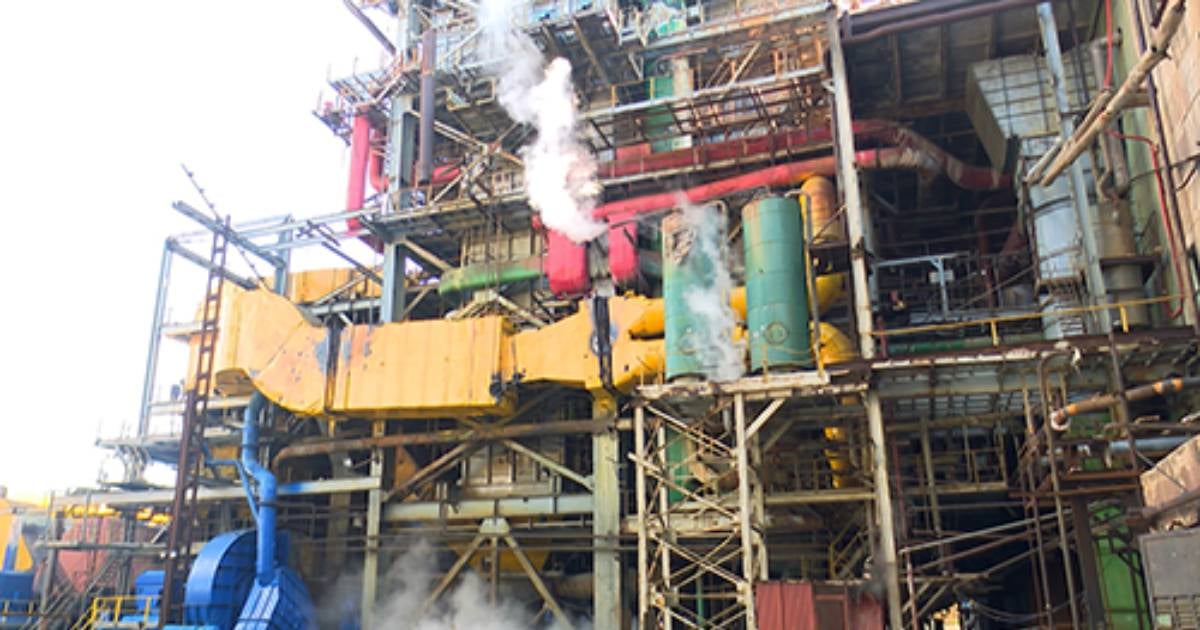
Related videos:
Cuba's Electric Union (UNE) announced that the Mariel Thermal Power Plant (CTE) met its annual production target by generating 1,114,809.3 MWh at 7:18 a.m. on Tuesday.
According to the entity's post on the social media platform Facebook, this achievement is the result of the dedication of the workers and the application of scientific and technical principles, in a year marked by challenges and difficulties.
However, while the UNE celebrates this outcome, the country's energy situation remains critical.
Today, blackouts in Cuba are affecting thousands of households, with a projected deficit of 1,525 MW, a figure that could exceed official estimates.
This pattern occurred on Monday when the actual deficit of 1,516 MW exceeded the initial projection of 1,385 MW.
The situation has sparked growing outrage among the public. In fact, even María del Carmen Hernández Carús, mother of Leticia Martínez Hernández, head of communication for the ruling Miguel Díaz-Canel, publicly expressed her frustration on social media, criticizing the ongoing blackouts and the lack of concrete solutions from the Electric Company.
In a lengthy Facebook post, Hernández Carús reported on the situation of neglect and indifference regarding his complaints about outages, which had left his home without electrical service for over 24 hours.
"Tomorrow I will not go to work, and I may not work the day after tomorrow either; it all depends on when the dispatcher from the Santa Clara Electric Company realizes that they need to send a vehicle to address the issue with my home's power supply," said the professor from the Central University Marta Abreu of Las Villas (UCLV).
According to Hernández Carús, his reports to the Santa Clara Electric Company fell on deaf ears, leaving him no choice but to stay home and miss work while awaiting the restoration of the service.
"I have called several times to remind them and to ask when they will address my complaint, but the operators, of course, don’t know; they just say that I will be attended to at some point. I don’t know if there is an emergency situation in Santa Clara that has them so busy. When I made the complaint, the young woman who assisted me asked, ‘Is it only in your house?’. ‘Yes,’ I replied. I sensed when answering that my priority would be almost nonexistent, but now I see that it is NOT ALMOST, IT IS NONEXISTENT," said Leticia's mother.
In her Facebook post, which she later deleted, the university professor recounted how, after a scheduled blackout, her home was left without one of the electrical phases, limiting power to just one room in the house.
Written with a mix of indignation and arrogance, her words were captured by Cuban internet users who denounced the hypocrisy of Hernández Carús. She deleted from her social media the critical post in which she vented her frustrations, only to replace it with another that was even more self-important, clearly indicative of nepotism and signs of preferential treatment due to being the mother of a senior official in the Cuban regime.
"Who knows if they are waiting for more reports from here to save fuel, right? I hold onto the hope that one day the linemen will come, I hope my boss doesn’t deduct the days I’ll be absent, I hope my students understand my absence. In short, hope is the last thing to fade away, as the saying goes. Because shame, no, some have already lost that," asserted the teacher at UCLV, the alma mater of Díaz-Canel.
Hernández Carús's post sparked mixed reactions on social media. On platform X, user Liborio described his stance as "counter-revolutionary and selfish" for publicly denouncing and demanding priority attention. "Refusing to work while demanding a salary isn’t exactly 'thinking like a country,'" the user commented ironically, labeling the action as "treachery."
Despite the achievement of specific goals such as those set by the Mariel CTE, the electrical situation in Cuba reveals a deep crisis that daily affects the quality of life for families on the island.
Frequently Asked Questions about the Energy Crisis in Cuba
What is the current situation of the energy crisis in Cuba?
The energy situation in Cuba is critical, with frequent blackouts caused by a generation capacity deficit exceeding 1,000 MW. This issue stems from a lack of infrastructure maintenance and a shortage of fuel.
How do Cubans react to the constant blackouts?
Cubans are showing deep discontent and outrage over prolonged blackouts. Many are using social media to express their frustration, criticize the government's inaction, and demand concrete solutions to the energy crisis.
What impact do blackouts have on the daily life of Cubans?
Power outages severely impact daily life, restricting access to essential services such as electricity, clean water, and medical care. This has resulted in precarious living conditions, exacerbating social unrest and desperation among the population.
What solutions does the Cuban government propose for the energy crisis?
The Cuban government has proposed the creation of "microsystems" and "energy islands" as temporary measures to alleviate the crisis. However, the lack of a clear and effective strategy has faced criticism, and the population continues to await lasting solutions.
How does the energy crisis affect the perception of the Cuban government?
The energy crisis has eroded confidence in the Cuban government. Criticism of its ineffective management has increased, with growing calls for political and structural changes, reflecting significant social discontent with the current regime.
Filed under: